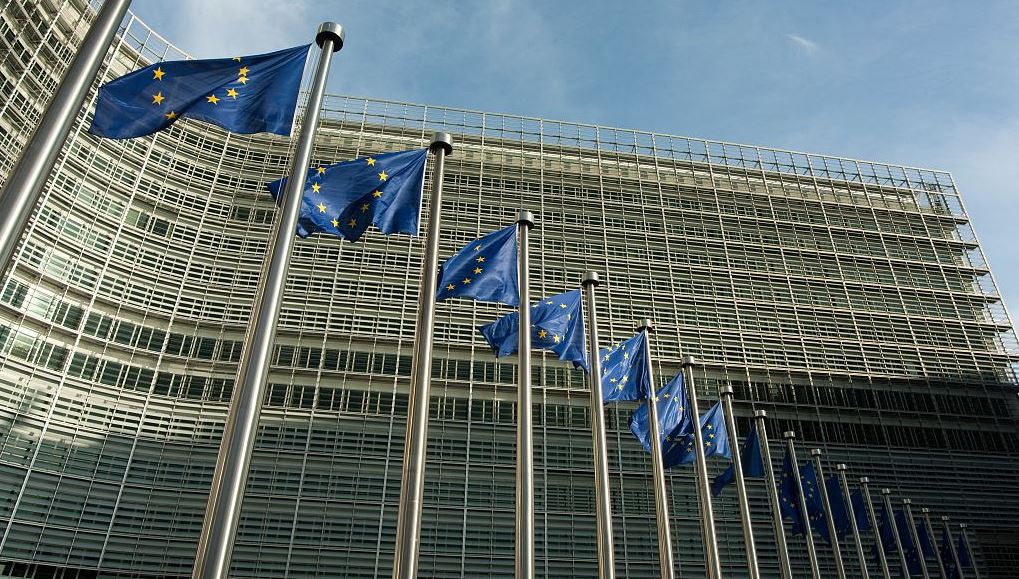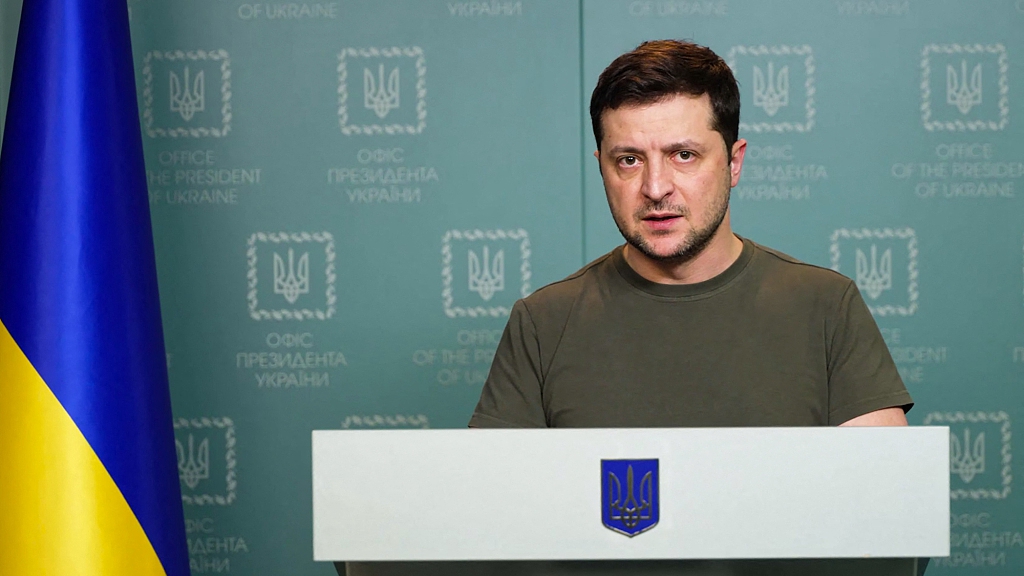
Editor's note: Thomas O. Falk is a London-based political analyst and commentator. He holds a Master of Arts in international relations from the University of Birmingham and specializes in U.S. affairs. The article reflects the author's opinions and not necessarily the views of CGTN.
The European Union (EU) summit has begun on Monday, but it has been overshadowed by a dispute over plans for an oil embargo against Russia. The full agreement is still not in sight. Nevertheless, Brussels faces stiff challenges as the issue at hand goes far beyond capturing unanimous consent among EU member states.
Germany's Chancellor Olaf Scholz was surprisingly chatty and optimistic at the summit. According to him, Europe has demonstrated that it could act in unity over Russian President Vladimir Putin's Special Military Operation in Ukraine, and believes that the EU would remain so.
Yet his statement contradicts the status quo as a sense of unity only exists on a rhetorical level.
Ukrainian President Volodymyr Zelenskyy is feeling much more bitter at Brussels and that serves as a testament to the growing ruptures among EU member states as well. He called on the West "to stop messing around with Russia and impose tougher sanctions on Moscow." This was the only way the war can end, according to his perspective. Zelenskyy feels confused over why all EU member states have failed to support the oil embargo.
Apparently, the summit was supposed to deliver major reforms. But any new reforms introduced and approve have only been marginal – at best.
Hungary and other countries continue to oppose an embargo since they have a heavy dependence on it. In a community with 27 member states, it only takes one of them to say, "no" and sabotage a deal. However, the message communicated from Brussels was that a unanimous vote was going to be inevitable and that was an illusion.
There's a reason the EU accepted derogations from the oil embargo for those countries that get it purely from pipelines and cannot ship oil from countries other than Russia - including land-locked Hungary.
A compromise was reportedly reached on late Monday evening, with pipeline deliveries getting exempt from the ban.
Nonetheless, this is precisely one of the primary and recurring problems of the EU and an unwanted irony lies: This exception means that the unity the EU has long been seeking does not actually exist.

Ukrainian President Volodymyr Zelenskyy delivers an address in Kyiv, Ukraine, March 1, 2022. /CFP
Ukrainian President Volodymyr Zelenskyy delivers an address in Kyiv, Ukraine, March 1, 2022. /CFP
Moreover, more decisions are waiting: The question of how EU countries can coordinate on their purchases of liquid gas and hydrogen, as well as their military spending are also topics that remain to be resolved, while another central question is how the reconstruction of Ukraine should be funded?
At the end of March, when the G7, North Atlantic Treaty Organization (NATO) and EU countries met in Brussels, European Council President Charles Michel said, "sanctions must be implemented in order to put pressure on the Kremlin." "We will work hard to build rock-solid unity because this war must end."
For more than three months, the Russia-Ukraine conflict has continued on, and Brussels stands further away from "rock-solid unity."
This week's summit is intended to prepare the ground for a bigger one at the end of June, at which fundamental decisions will be addressed, including Ukraine's accession question. Should Kyiv be granted a candidate status or not? France and the Netherlands, for example - oppose it, while many Eastern Europeans stand in favour of it. Once again, there's no unity and no progress.
As has happened so often before, Brussels has been hindered by the small details, while ignoring the big picture and fundamental contradictions that have tested the EU's unity concerning Ukraine. In France and Berlin, the leading capitals of EU member states, one prefers an early peace solution, even if Ukraine must give up part of its territories to Russia and other countries.
The Eastern Europeans and the U.S. oppose that compromise as they wish to prolong the conflict, in efforts to weaken Russia.
Accordingly, the agreement on a Russian oil embargo seems irrelevant, while this week's summit looks like nothing more than a gimmick. One that makes Zelenskyy's feel a rising sense of frustration with the EU and deservedly so.
(If you want to contribute and have specific expertise, please contact us at opinions@cgtn.com. Follow @thouse_opinions on Twitter to discover the latest commentaries in the CGTN Opinion Section.)

